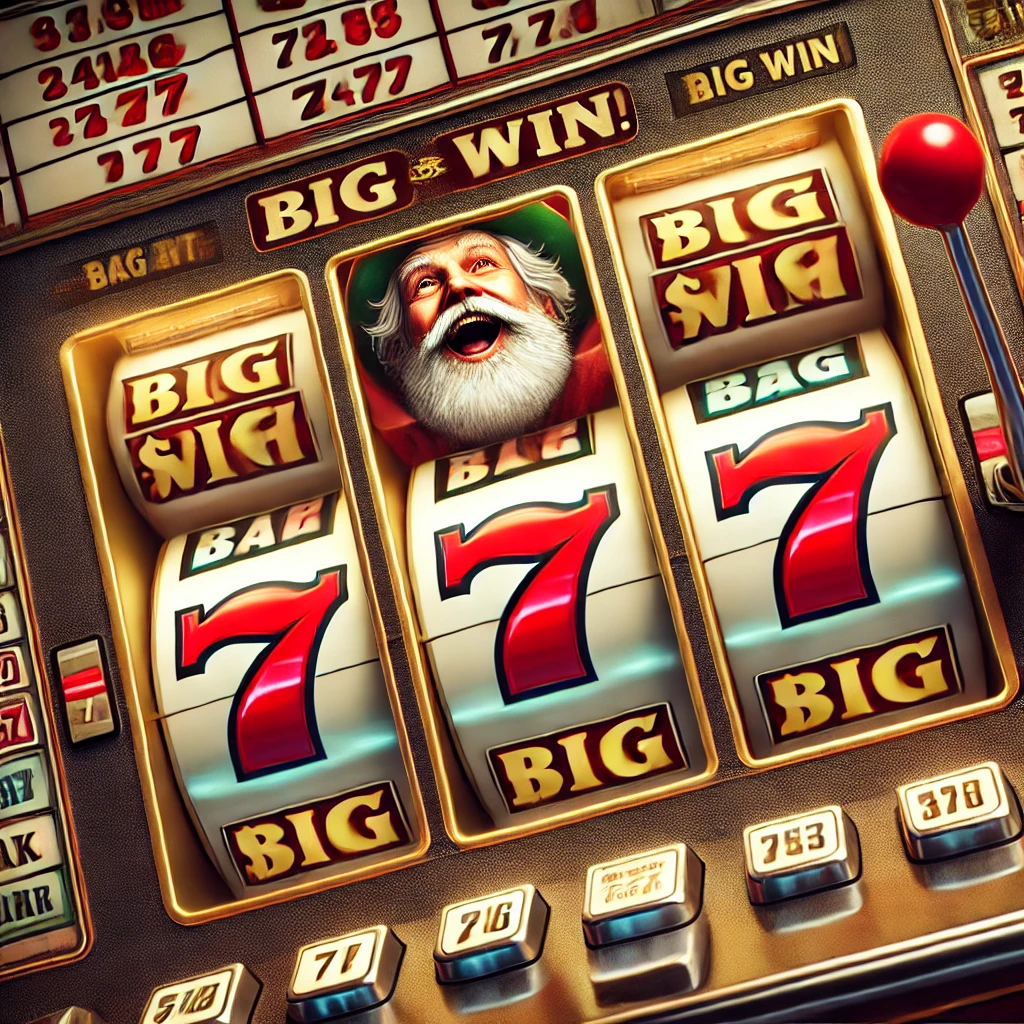The Attraction of Gambling: Action and Response
Gambling, particularly with slot machines, engages complex psychological processes rooted in the pursuit of excitement and reward. The thrill of gambling stimulates the brain’s reward system through the release of neurotransmitters like dopamine, which can create a powerful sense of pleasure and reinforcement. This response is similar to the effects seen in drug addiction, making gambling potentially addictive.
The Rush of Adrenaline
Slot machines, with their bright lights and dynamic sound effects, provide an intense sensory experience that heightens excitement and anticipation. Each spin generates a rush of adrenaline, which is further amplified by the possibility of a substantial monetary reward. The anticipation and emotional highs associated with near-wins contribute to the addictive nature of these games.
The Near-Miss Effect
One key psychological aspect of slot machine gambling is the “near-miss effect.” When a player almost wins, but narrowly misses, it triggers a sense of frustration mixed with hope. This feeling of being “close” to winning can encourage continued play, as players believe that a win is imminent. Near-misses exploit the gambler’s cognitive biases, driving them to persist in their betting behavior.
Cognitive Biases and Gambling

The Gambler’s Fallacy
The gambler’s fallacy is a cognitive bias where individuals believe that past random events influence future outcomes. For example, if a slot machine has recently paid out several times, a player might wrongly assume that it is “due” for another payout soon. This belief is false because each spin is statistically independent, and past results do not affect future outcomes.
Loss Chasing
Loss chasing, or “chasing losses,” occurs when gamblers continue to bet in an attempt to recover money they have lost. This behavior often leads to even greater losses as individuals attempt to compensate for their previous financial setbacks. The emotional drive to recoup losses can trap gamblers in a cycle of increasingly risky behavior.
Illusion of Control
The illusion of control is a cognitive distortion where individuals believe they have influence over random events. In slot machine gambling, players may feel that their actions, such as pressing the button or selecting specific machines, can affect the outcome. This false sense of control can extend playtime and increase gambling intensity.
Cultural and Environmental Influences
The Gambling Environment
The design of casinos and online gambling platforms is meticulously crafted to enhance player engagement. Features such as flashing lights, captivating sounds, and immersive graphics are designed to keep players in a continuous state of excitement. The environment plays a significant role in encouraging extended gambling sessions.
Social and Cultural Factors
Cultural attitudes toward gambling and social influences significantly impact gambling behavior. In some cultures, gambling is normalized or even encouraged, while in others, it is stigmatized. Peer pressure and exposure to gambling within social circles can increase the likelihood of individuals engaging in gambling activities.
Reasons for Addiction: Psychological Dynamics
Reinforcement Cycle
Gambling addiction is often reinforced by a cycle of intermittent rewards. Slot machines provide random payouts, which can create a pattern of reinforcement that encourages continued play. The randomness of rewards, coupled with occasional wins, strengthens the gambling behavior and makes it more difficult to quit.
Cognitive Distortions
Pathological gambling is characterized by distorted beliefs about the probabilities of winning and the impact of skill on outcomes. These cognitive distortions lead gamblers to take higher risks and persist in gambling despite negative consequences. Misunderstanding the odds and believing in superstitions or strategies can perpetuate gambling behavior.
Escapism and Emotional Regulation
For many individuals, gambling serves as an escape from stress, anxiety, or depression. The thrill and excitement of gambling can temporarily alleviate emotional distress, but it can also trap individuals in a cycle of addiction. The need for emotional relief often leads to more frequent and intense gambling.
Therapeutic and Preventive Approaches
Cognitive-Behavioral Therapy (CBT)
Cognitive-behavioral therapy (CBT) is a widely used treatment for gambling addiction. CBT helps individuals identify and challenge irrational thoughts and beliefs that contribute to gambling behavior. It also provides strategies for managing urges and addressing underlying issues that fuel the addiction.
Motivational Interviewing
Motivational interviewing is another effective approach that helps individuals explore and resolve ambivalence about changing their gambling behavior. This technique supports individuals in increasing their motivation to quit gambling and seek help.
Support Groups and Peer Support
Gamblers Anonymous and similar support groups offer valuable peer support for individuals struggling with gambling addiction. Sharing experiences with others who have faced similar challenges can reduce feelings of isolation and provide practical advice for overcoming addiction.
Environmental and Social Interventions
Preventive measures include restrictions on entry to gambling venues, self-exclusion programs, and campaigns promoting responsible gambling. Public awareness campaigns about the risks of gambling and the availability of support resources can also help prevent and address gambling addiction.
Conclusion
The psychology of slot machine gambling is a complex interplay of cognitive biases, emotional responses, and environmental factors. Understanding these psychological dynamics is crucial for developing effective treatments and support systems for individuals struggling with gambling addiction. By addressing cognitive distortions, providing therapeutic interventions, and promoting responsible gambling practices, we can mitigate the adverse effects of gambling and support individuals in their recovery journeys.